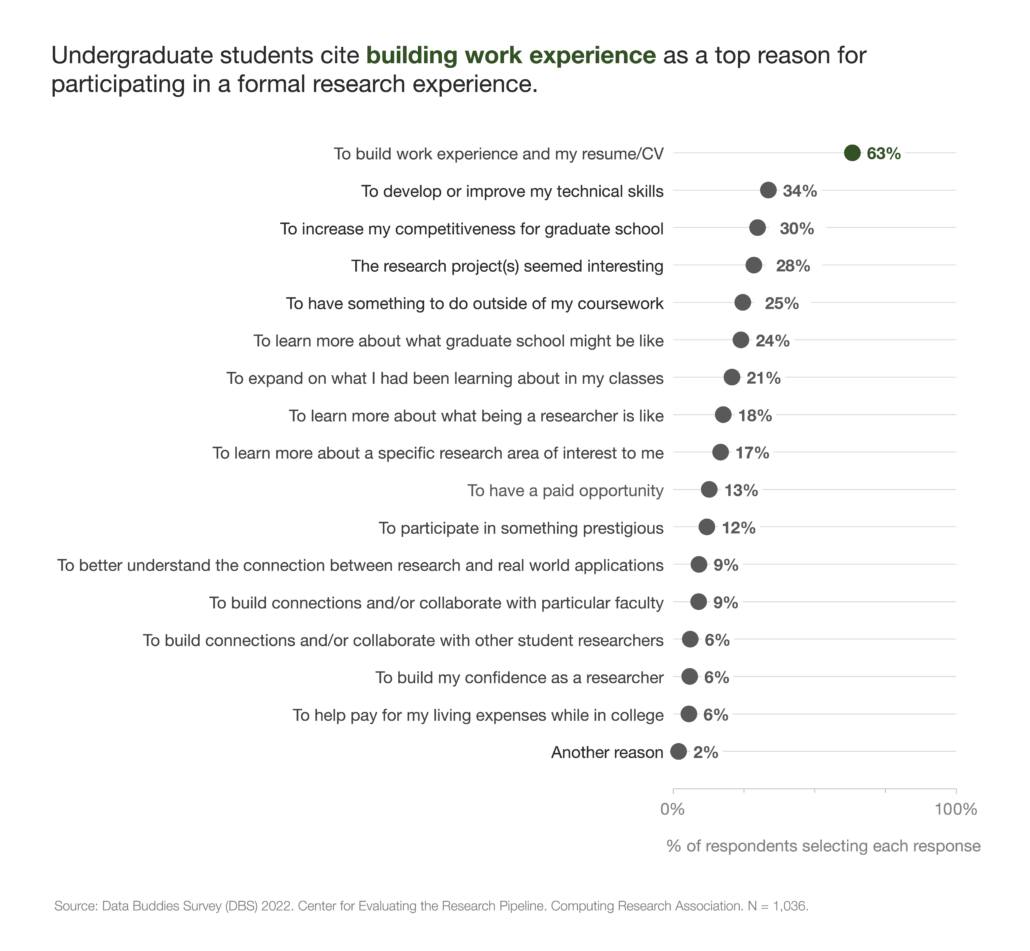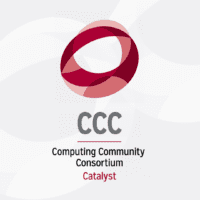CERP Infographic: What motivates students to participate in formal research experiences?
By Ama Nyame-Mensah, Senior Research Associate, CERP
Undergraduate research experiences are a promising tool for recruiting and retaining students in computing disciplines. Some studies show that undergraduate research opportunities help students gain confidence in their ability to conduct research, acquire valuable knowledge, and explore professional and career options (Alvarado, Villazon, & Tamer, 2019; Nyame-Mensah, Tamer, & Stout, 2015). Although these experiential learning opportunities have many benefits, little is known about why students choose to take part in these experiences.
The Center for Evaluating the Research Pipeline (CERP) recently surveyed 1,036 undergraduate students majoring in a computing-related field who reported having participated in a formal research experience where they worked closely with a mentor or research advisor (i.e., a formal REU). CERP asked survey participants to select up to three reasons from a list of seventeen that best explained their motivations for participating in a formal REU.

Survey responses were summarized using frequency counts and percentages. The results showed that among those surveyed, more than half (63%) indicated that one motivation for participating in a formal REU was to build work experience and their resume or CV. A desire to develop or improve their technical skills (34%) or increase their competitiveness for graduate school (30%) were among the next two most selected reasons students were motivated to participate in a formal REU.
This analysis revealed the most frequently cited reason undergraduate students choose to participate in a formal research experience is to gain work experience and build their resumes. Future work should examine whether different groups of students report similar or dissimilar reasons for participating in formal REUs.
Notes:
The survey data analyzed for this infographic were collected by the Center for Evaluating the Research Pipeline via the Data Buddies Project. The sample includes 1,036 undergraduate students. All survey participants indicated they were declared computing majors and had participated in a formal research opportunity where they worked closely with a mentor or research advisor.
The Data Buddies Project is currently supported through National Science Foundation (NSF) awards CNS-1840724, CNS-2036717, DUE-1821136, sub-awards and contracts, and direct CRA contributions. Previous NSF awards that supported DBS include CNS-1246649 and DUE-1431112. Any opinions, findings, and conclusions or recommendations expressed in this material are those of the author(s) and do not necessarily reflect the views of the National Science Foundation.
This analysis is brought to you by the CRA’s Center for Evaluating the Research Pipeline (CERP). CERP provides social science research and comparative evaluation for the computing community. Subscribe to the CERP newsletter. Subscribe to the CERP newsletter here. Check out CERP’s activities and find out how to engage on CERP’s website.









